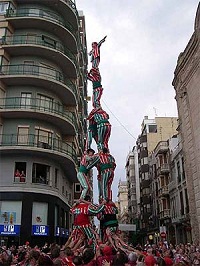LONDON-VALENCIA | Bilateral agreements would, indeed, avoid the slow-death trap of treaty changes that could turn much-needed decisions for the economic recovery of the euro zone into its shroud.
Germany, and to a lesser extent France, might then ensure that the governments of those countries seeking urgent financial support are committed to introduce controls over their public spending, and fiscal and labour reforms that will improve industrial competitiveness. This would involve in some measure sharing sovereignty, too, before the European Central Bank (ECB) launches a bond-buy programme at a sufficient scale to tame yields or maintain them under the critical level in which borrowing becomes unsustainable.
Only when conditions are set clearly and transparently, core eurobonds from a joint league of Finland, France, Luxemburg, Holland and Belgium, will make sense to the markets. Better still, new credit should be injected in credible strategies to bring the stalled economies again to life, instead of burnt as new debt replaces old debt in the current never-ending, utterly untrustworthy cycle.
But for now, these are mere rumours. In the meanwhile, the coalition cabinet in the UK seems to have realised that its Plan A must take a Keynesian pill or face a double-dip recession as much as its euro neighbours do in the continent, and this week’s US non-farm job creation will continue to fall short of filling the gap that employment destruction rates leave behind.
Spain’s Bankinter analysts on Monday said in a note to investors that there is a 25pc possibility that, even if these pieces of macroeconomic gossip were to become factual news, the pressure on the Club Med that German chancellor Angela Merkel exercises –with her negative to the ECB rescuing Italian and Spanish debt auctions– can be simply irresistible: without a softer touch, some Southern European governments deemed insolvent will be so. The monetary union would finally fail.
 Surely, Europe is more than a currency, though. In Algemesí, villagers know a thing or two about that, having this week been awarded the inscription of the town’s traditional celebrations on the Representative List of the Intangible Cultural Heritage of Humanity. And it is well deserved. Have a look at their so-called human towers: the heaviest and strongest of the group remain on the ground as a firm, stable base for the rest of the members to climb up on others who lend a leg, an arm, their shoulders and hands for the collective purpose of letting the new generation, a couple of children, reach as high as it has carefully been rehearsed during the year.
Surely, Europe is more than a currency, though. In Algemesí, villagers know a thing or two about that, having this week been awarded the inscription of the town’s traditional celebrations on the Representative List of the Intangible Cultural Heritage of Humanity. And it is well deserved. Have a look at their so-called human towers: the heaviest and strongest of the group remain on the ground as a firm, stable base for the rest of the members to climb up on others who lend a leg, an arm, their shoulders and hands for the collective purpose of letting the new generation, a couple of children, reach as high as it has carefully been rehearsed during the year.
Their united effort achieves success only if everyone sustains the position according to his or her body weight, muscle and resistance. Everyone feels the pain, yet, everyone is contented with it because its degree is reasonable and adjusted to the task as much as to each of them. People in Algemesí has been staging these awe-inspiring towers for centuries now: European leaders are welcome to read between the lines.





Be the first to comment on "European Monetary Union members better learn from Algemesí’s Muixeranga"